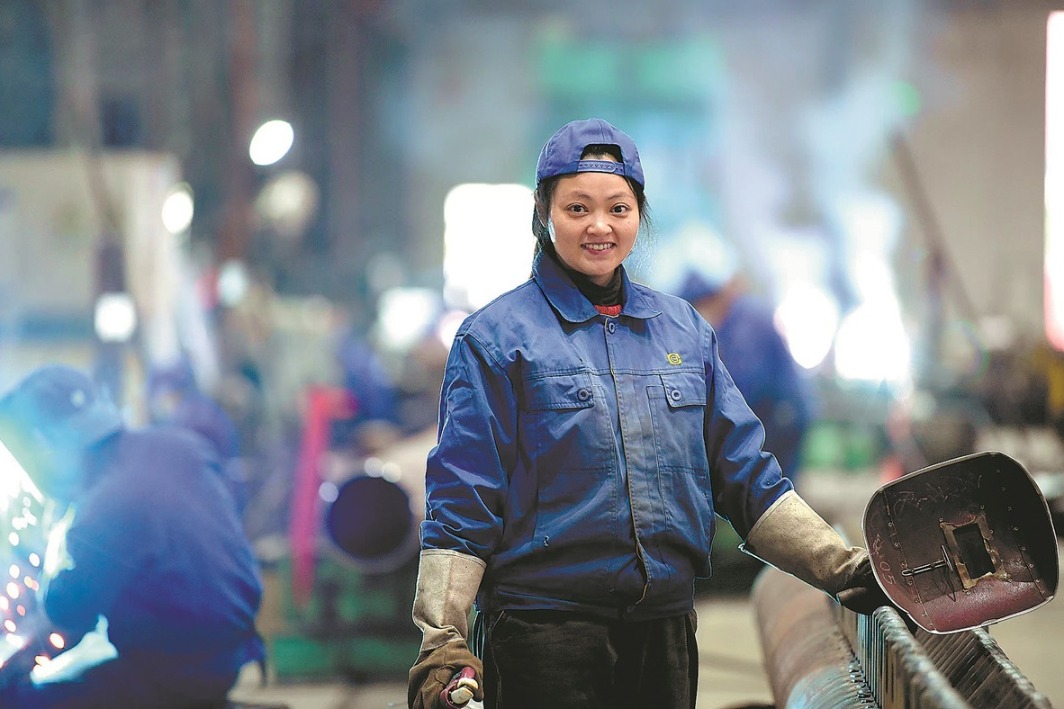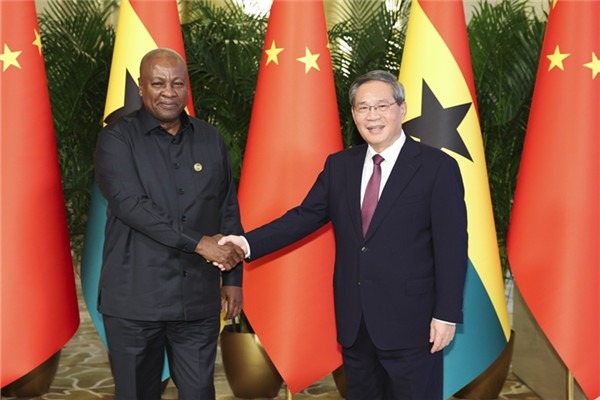TV rules relaxed to recapture eyeballs
Traditional channels struggling to keep pace with digital platforms


The National Radio and Television Administration has introduced new measures aimed at revitalizing the country's flagging television industry and reversing the decline in viewership by encouraging higher-quality domestic content and allowing more foreign shows onto Chinese screens.
Released in August, the 21-point policy directive represents an important relaxation of content rules in recent years. Key measures include lifting the strict 40-episode limit on TV series, permitting midshow advertising and encouraging broadcasters to import more award-winning foreign dramas, documentaries and animations. Excellent online dramas, movies, documentaries, animations and variety shows are also encouraged to transition to the terrestrial television screen.
The move comes as the country's TV industry faces intense competition for eyeballs from online platforms, short-form video apps and livestreaming services. Official data shows a stark decline in productions for terrestrial TV, with only 115 series produced last year, down from 202 in 2020.
"These measures acknowledge that the old one-size-fits-all approach wasn't working anymore," Hu Xiang, an associate researcher at the administration's Development Research Center, told State broadcaster China Central Television. "We're adapting to changes in both media formats and audience preferences."
The changes have been welcomed by industry veterans who have experienced the sector's evolution firsthand.
Wang Pengju, a former secretary-general of the China Television Program Industry Association, who began his career in 1983, said he "wholeheartedly supports" the new measures.
"In my 40-plus years in this industry, I've witnessed the entire cycle of long-form television's rise, development, prosperity and eventual decline," Wang said. "Episode restrictions were effective against zhushuiju (watereddown dramas), but television shouldn't be measured by episode count alone — it should be determined by the needs of the story."
Comparing television to literature, Wang said that "long, medium and short-form works coexist and complement each other "in publishing.
Li Xiangmin, a screenwriter and a senior official from the Nanjing University of the Arts in Jiangsu province, told Xinhua Daily that the most significant aspect of these measures is their timely "unshackling" of the industry, breaking constraints that have hindered content productivity.
"The previous restrictions sometimes forced producers to cut important narrative elements, compromising artistic quality," Li said. "It is particularly relevant for historical epics and complex adaptations that need more space to develop."
The policy shift maintains safeguards against watered-down dramas, requiring special approval for exceptionally long series exceeding 40 episodes based on subject, content and need.
Zhang Shuwei, producer of the drama Northward, cites the example of the popular television drama Empresses in the Palace, which, despite having 76 episodes, remains highly engaging, with audiences requesting the release of deleted scenes on social media.
Streaming platform iQiyi discussed the policy at a recent briefing. Gong Yu, the platform's founder and CEO, said that iQiyi will increase its efforts to be innovative, including launching initiatives such as seasonal series, combining long and short formats, and breaking through existing content specifications.
To stimulate creativity, the measures also liberalize the scheduling of season-based dramas, offer more flexible management for historical dramas, and remove the mandatory one-year interval between seasons. It also allows multiple provincial channels to broadcast the same show simultaneously, reducing acquisition costs for broadcasters.
Last year, authorities raised the prime-time quota for historical dramas on satellite channels, previously capped at 15 percent of annual total airtime, to 30 percent. Going forward, more flexible scheduling policies will be implemented in response to market demand and audience preferences, according to a briefing about the policy by the administration.
With the dual support of policy and market recognition, Hui Min, general manager of the copyright business department at China Literature, said more intellectual properties are expected to be adapted into films and television shows, reaching audiences faster and more effectively.
While encouraging the emergence of quality content, the policy aims to invigorate the domestic industry by introducing greater external competition. It calls for carefully selected outstanding foreign TV dramas, animations and documentaries to be broadcast on television, particularly those that have won awards like the Magnolia Awards or Golden Panda Awards.
Screenwriter Yang Jinsong said the popularity of foreign series like the Brazilian Isaura: Slave Girl and Japanese Akai Giwaku, which, alongside domestic adaptations of the four great Chinese classical novels, created a vibrant cultural landscape in the 1980s.
He said the return of foreign content to Chinese screens was a natural development given the international success of Chinese productions like Minning Town.
"This creates conditions for more balanced cultural exchange," Yang told Xinhua Daily. "Quality international programming can stimulate domestic innovation while giving audiences more choice."
The new rules explicitly encourage content sharing between traditional broadcasters and digital platforms, acknowledging changing viewing habits. Micro-dramas originating online will now have more pathways to television broadcast, while major events will be designed for simultaneous viewing on TV and interaction via mobile devices.
Li said that TV stations, as mainstream cultural platforms, and dramas broadcast on TV screens (as opposed to online dramas) still have irreplaceable functions.
"Every era needs masterpieces that reflect its characteristics, works that are profound in thought, exquisite in artistry, and excellent in production. This mission cannot be entirely entrusted to the market. Currently, microdramas play a 'light boat' role, but due to their fragmented format, they cannot fully carry the grand epics of the times or complex and profound character development," said Li.
JSTV channel director Wang Xi said that the core value of TV screens will not disappear. "Especially in the fields of high-quality content, major galas and sports events, the advantages of large TV screens remain evident."
Wang echoed that short-form video platforms are popular among audiences for their "emotional expression and catering to fragmented viewing time", which cannot carry profound literary value or comprehensively showcase social and era changes.
"Look at the excellent long-form television works broadcast in recent years, especially productions like A Lifelong Journey — short-form series cannot achieve this kind of effect," he said.
Despite the regulatory adjustments, the country's television industry faces structural challenges. TV viewership has declined steadily for years, with many younger consumers preferring short-video platforms like Douyin and Bilibili.
"The question isn't about content restrictions but about how television remains relevant in the digital age," said Liu Yongchang, a professor of journalism and communication at Nanjing Normal University.
wangqian@chinadaily.com.cn





































